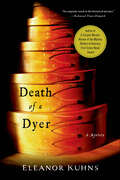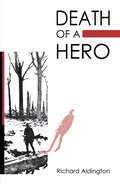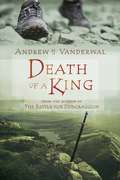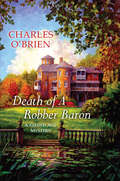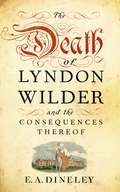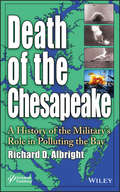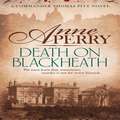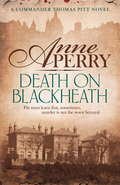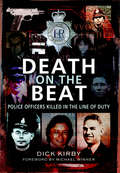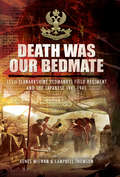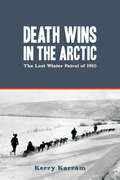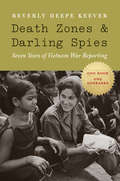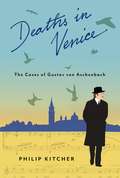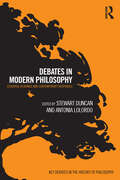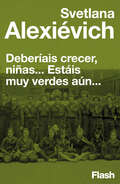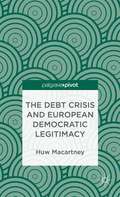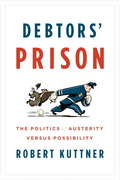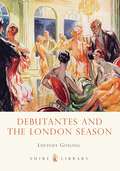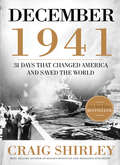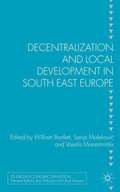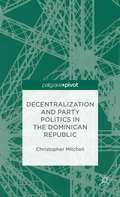- Table View
- List View
Death of a Dyer: A Mystery (Will Rees Mysteries #2)
by Eleanor KuhnsWill Rees feels at home. It's been a long time since he last felt this way—not since before his wife died years ago and he took to the road as a traveling weaver. Now, in 1796, Rees is back on his Maine farm, living with his teenaged son, David, and his housekeeper, Lydia—whose presence contributes more towards his happiness than he's ready to admit. But his domestic bliss is shattered the morning a visitor brings news of an old friend's murder.Nate Bowditch and Rees hadn't spoken in many long years, but as children they were closer than brothers, and Rees feels his loss acutely. Asked to look into the circumstances surrounding Nate's death, Rees simply can't refuse. At the Bowditch farmstead, Rees quickly discovers that everyone—from Nate's frosty wife to his missing son to the shy serving girl—is hiding something. But are any of them actually capable of murder? Or does the answer lie elsewhere, behind stones no one even knew needed unturning?Death of a Dyer once again proves Eleanor Kuhns's remarkable ability to spin a captivating story of a fascinating era and capture the light and darker sides of human nature on the page.
Death of a Hero
by Richard Aldington"Death of a Hero", published in 1929 was the author’s literary response to the war. He went on to publish several works of fiction. In 1942, having moved to the United States, he began to write biographies. This last work was very controversial, as it was highly critical of the man still regarded as a war hero.
Death of a King
by Andrew H. VanderwalOne of history's most turbulent times comes dramatically to life in this big, broad adventure novel. Twelve-year-old Alex, determined to get to the bottom of his parents' disappearance, sets out on a quest to find them. An ambitious time-travel novel set in Scotland at the time of William Wallace, Death of a King explores the turbulence of the bloody late thirteenth century after King Alexander dies on his way to Kinghorn without leaving an heir to the throne. The country is thrown into chaos, and Alex must overcome many obstacles along his path. Full of humor, intrigue, bloodshed, battles, and suspense, Death of a King is a rollicking read told by a major voice in historical fiction.
Death of a Robber Baron (Gilded Age Mystery #1)
by Charles O'BrienSet amidst the glittering enclaves of money, power, and privilege in America's tumultuous Gilded Age, this richly detailed mystery follows private detective Pamela Thompson into an elite world where fortunes are flaunted and scandals are hidden--one body at time. . .Death Of A Robber BaronNew York City, 1891. In the spirit of Christmas, Mrs. Pamela Thompson has devoted herself to charity work, even taking an orphaned child into her Greenwich Village townhome. Her husband Jack, an ambitious banker, agrees to such generous acts as long as his wife allows him to invest his time--and her trust fund--in more lucrative opportunities. But when he risks their entire fortune on questionable copper stocks, Pamela ends up losing everything: her house, her inheritance, and even her husband. . .Penniless, Pamela is forced to move into a boarding house in the Lower East Side and accept a position at Macy's--as a store detective. Displaying an uncanny knack for the job, she's asked to investigate a private matter of thievery at a palatial "cottage" in the Berkshires. Ironically, her employer is none other than Henry Jennings, the infamous "Copper King" who sold bad stocks to her husband. But when the filthy rich scoundrel is found dead in his study, Pamela holds herself accountable--for sorting out this whole sordid business of money, motives. . .and murder.
The Death of Lyndon Wilder and the Consequences Thereof
by E DineleyWhen governess Anna Arbuthnot arrives at Ridley Hall, she finds a house in deep mourning. Lyndon Wilder, oldest and most beloved son of Lord and Lady Charles has been killed in the Napoleonic Wars, leaving behind him a now orphaned daughter, Lottie and other undiscovered troubles. Anna finds it easy to establish a bond with her young charge, but other relationships in the house begin to strain under the weight of Lyndon's absence. When Thomas Wilder, the younger son and new heir, returns from war, he finds his family in chaos and Lyndon's legacy threatening Ridley Hall's future. As executor of his brother's will and guardian of his daughter, Thomas is forced to leave the military life he loves, and is confined to the faltering estate of his childhood. It is only with Anna's help that Thomas can save Ridley, and most crucially, protect his parents from the truth about Lyndon Wilder...
The Death of Lyndon Wilder and the Consequences Thereof
by E A DineleyWhen governess Anna Arbuthnot arrives at Ridley Hall, she finds a house in deep mourning. Lyndon Wilder, oldest and most beloved son of Lord and Lady Charles has been killed in the Napoleonic Wars, leaving behind him a now orphaned daughter, Lottie and other undiscovered troubles. Anna finds it easy to establish a bond with her young charge, but other relationships in the house begin to strain under the weight of Lyndon's absence. When Thomas Wilder, the younger son and new heir, returns from war, he finds his family in chaos and Lyndon's legacy threatening Ridley Hall's future. As executor of his brother's will and guardian of his daughter, Thomas is forced to leave the military life he loves, and is confined to the faltering estate of his childhood. It is only with Anna's help that Thomas can save Ridley, and most crucially, protect his parents from the truth about Lyndon Wilder...
Death of the Chesapeake: A History of the Military's Role in Polluting the Bay
by Richard AlbrightIn essence this book deals with an area that contributes significantly to the pollution and degradation of Chesapeake Bay, but has been completely overlooked in many of the efforts to restore the Bay, specifically, the federal military pollution sources. The book also recognizes for the first time, that efforts to restore the Bay have failed because of violation of a fundamental precept of environmental cleanup; that is, to sample the site and see what is there. The Bay itself has never been sampled. Thus this book presents a view of the environmental condition of Chesapeake Bay that is totally unique. It covers a part of the history of the Bay that is not widely known, including how the Bay was formed. It presents a mixture of science, military history, and novel solutions to the Bay's degradation. In so doing, the author examines the military use of the Bay and reveals the extent of munitions dumpsites containing nitrogen and phosphorus as well as chemical warfare material, and how this is effecting the environment. The book concludes with the author's own clean-up plan that, if implemented, would go a long way to restoring health to Bay. The book is supplemented with many photographs and maps.
Death On Blackheath: Secrecy, betrayal and murder on the streets of Victorian London (Thomas Pitt Mystery #29)
by Anne PerryGreenwich,1897. A macabre scene is discovered outside a house on Shooters Hill. There has been a vicious fight, and amid the bloodstains are locks of long auburn hair. Thomas Pitt, head of Special Branch, is called: this is the home of Dudley Kynaston, a minister with access to some of the government's most dangerous secrets, and any inquiry must be handled with utmost discretion.Although an auburn-haired maid is missing from Kynaston's household, with no evidence there is little Pitt can do. Until a corpse, mutilated beyond recognition, is discovered a few weeks later. As Pitt begins to investigate, he finds small inconsistencies in Kynaston's story. Are these harmless omissions, or could they lead to something more serious, something that could threaten not just Kynaston's own family but also his Queen and country?(P)2013 Headline Digital
Death On Blackheath: Secrecy, betrayal and murder on the streets of Victorian London (Thomas Pitt Mystery #29)
by Anne PerryPitt must learn that, sometimes, murder is not the worst betrayal... Death on Blackheath is a masterful tale of the secrecy and lies hiding just beneath the glittering surface of wealthy Victorian society, featuring Anne Perry's much-loved detective Thomas Pitt. Perfect for fans of C. J. Sansom and Sarah Perry.'There is a freshness about [Perry's] writing which makes it truly exceptional and I was gripped until the final page. Death on Blackheath was one of the best books I've read this year and I cannot recommend it highly enough' - Eurocrime Greenwich, 1897. A macabre scene is discovered outside a house on Shooters Hill. There has been a vicious fight, and amid the bloodstains are locks of long auburn hair. Thomas Pitt, head of Special Branch, is called: this is the home of Dudley Kynaston, a minister with access to some of the government's most dangerous secrets, and any inquiry must be handled with utmost discretion. An auburn-haired maid has disappeared from Kynaston's household, but no major crime appears to have taken place. Then a disfigured body is found in the gravel pits nearby. Could this be Kynaston's missing servant? As Pitt begins to investigate, he finds small inconsistencies in Kynaston's story. Are these harmless omissions, or could they lead to something more serious, something that could threaten not just Kynaston's own family but also his Queen and country? What readers are saying about Death on Blackheath: 'If you're looking for intelligent historical crime fiction with solid characterisation and a good sense of the period, Perry can always be relied upon''Death on Blackheath combines her usual lush descriptions that so completely transport the reader into the time period with pacing so remarkably quick, I believe this may be one of Perry's best literary efforts to date''[Anne Perry's] books are always gripping and beautifully written'
Death on the Beat: Police Officers Killed in the Line of Duty
by Dick KirbyA former member of London&’s MP Flying Squad pays tribute to his fellow officers in a gripping and emotional true crime chronicle of duty and sacrifice. Dick Kirby of London&’s Serious Crime Squad shares ten stories of courage spanning fifty years of crime enforcement in the Metropolitan Police. In honoring the selfless men and women who gave their lives, Kirby sheds light on the ever-present dangers of street patrol—from confrontations at public protests to being caught in the middle of a gang war to answering a seemingly run-of-the-mill call at a quiet residence. Here are the true stories of extraordinary lives cut short: WPC Yvonne Fletcher gunned-down while policing a demonstration at the Libyan Embassy; Detective Sergeant Ray Purdy, taken out while arresting a common blackmailer; PC Ray Summers, an officer with less than two years&’ service, stabbed to death as he broke up a gang fight; a three-man crew in an unmarked &‘Q&’ car wiped out by gunmen; PC Nat Edgar, shot by a burglar; PC Patrick Dunne, a home-beat officer murdered while investigating a domestic dispute; the horrific bombing of Herrods department store which cost three brave police officers their lives; and the murder of PC Stephen Tibble, which sparked investigations into the IRA. Drawing deeply on his knowledge and contacts within and outside the Metropolitan Police, Kirby explores the lives and deaths of these officers, and the trauma endured by the colleagues and loved ones they left behind. &“I am delighted that Dick Kirby has written this book. Such heroes should be remembered.&” —Michael Winner, director of Death Wish, from the Forward
Death Was Our Bedmate: 155 (Lanarkshire Yeomanry) Field Regiment and the Japanese 1941–1945
by Agnes McEwan Campbell ThompsonThe book tells the story of a little known artillery regiment, the 155th (Lanarkshire Yeomanry) Field Regiment, RA which saw constant action during the ill-fated Malayan Campaign of 1941/42 and whose members later experienced the worst kind of hell as POWs of a cruel and bestial enemy.Following the Japanese invasion of Malaya, the Regiment fought a brave and resolute rearguard action all the way down the Malayan Peninsular and onto the so called impregnable fortress of Singapore. Held in the highest respect by comrades and foe alike, this former territorial cavalry regiment fully deserved its Royal Artillery moto Ubigue everywhere.In the years that followed, the Gunners slaved, suffered an d died on the infamous Burma Railway, in copper mines of Formosa and camps throughout the Far East. More men of the Regiment died as POWs than fell in action. They should not be forgotten.Included is a full nominal roll which allows the reader to identify the camp/s where each individual Gunner was held. A Roll of Honour provides the date, place and cause of death and place of burial/commemoration of the Regiments casualties.
Death Wins in the Arctic: The Lost Winter Patrol of 1910
by Kerry KarramA harrowing tale of human intelligence pitted against the forces of nature. With prospectors, trappers, and whalers pouring into northwestern Canada, the North West Mounted Police were dispatched to the newest frontier to maintain patrols, protect indigenous peoples, and enforce laws in the North. In carrying out their duties, these intrepid men endured rigorous and dangerous conditions.On December 21, 1910, a four-man patrol left Fort McPherson, Northwest Territories, heading for Dawson City, Yukon, a distance of 670 kilometres. They never arrived. The harrowing drama of their 52-day struggle to survive is an account of courageous failure, one that will resonate strongly in its depiction of human intelligence pitted against the implacable forces of nature. Based on Fitzgerald’s daily journal records, Death Wins in the Arctic tells of their tremendous courage, their willingness to face unthinkable conditions, and their dedication to fulfill the oath they took. Throughout their ordeal, issues of conservation, law enforcement, Aboriginal peoples, and sovereignty emerge, all of which are global concerns today.
Death Zones and Darling Spies: Seven Years of Vietnam War Reporting (Studies in War, Society, and the Military)
by Beverly Deepe KeeverChosen for 2015 One Book One NebraskaIn 1961, equipped with a master&’s degree from famed Columbia Journalism School and letters of introduction to Associated Press bureau chiefs in Asia, twenty-six-year-old Beverly Deepe set off on a trip around the world. Allotting just two weeks to South Vietnam, she was still there seven years later, having then earned the distinction of being the longest-serving American correspondent covering the Vietnam War and garnering a Pulitzer Prize nomination.In Death Zones and Darling Spies, Beverly Deepe Keever describes what it was like for a farm girl from Nebraska to find herself halfway around the world, trying to make sense of one of the nation&’s bloodiest and bitterest wars. She arrived in Saigon as Vietnam&’s war entered a new phase and American helicopter units and provincial advisers were unpacking. She tells of traveling from her Saigon apartment to jungles where Wild West–styled forts first dotted Vietnam&’s borders and where, seven years later, they fell like dominoes from communist-led attacks. In 1965 she braved elephant grass with American combat units armed with unparalleled technology to observe their valor—and their inability to distinguish friendly farmers from hide-and-seek guerrillas.Keever&’s trove of tissue-thin memos to editors, along with published and unpublished dispatches for New York and London media, provide the reader with you-are-there descriptions of Buddhist demonstrations and turning-point coups as well as phony ones. Two Vietnamese interpreters, self-described as &“darling spies,&” helped her decode Vietnam&’s shadow world and subterranean war. These memoirs, at once personal and panoramic, chronicle the horrors of war and a rise and decline of American power and prestige.
Deaths in Venice: The Cases of Gustav von Aschenbach (Leonard Hastings Schoff Lectures)
by Philip KitcherPublished in 1913, Thomas Mann's Death in Venice is one of the most widely read novellas in any language. In the 1970s, Benjamin Britten adapted it into an opera, and Luchino Visconti turned it into a successful film. Reading these works from a philosophical perspective, Philip Kitcher connects the predicament of the novella's central character to Western thought's most compelling questions. In Mann's story, the author Gustav von Aschenbach becomes captivated by an adolescent boy, first seen on the lido in Venice, the eventual site of Aschenbach's own death. Mann works through central concerns about how to live, explored with equal intensity by his German predecessors, Schopenhauer and Nietzsche. Kitcher considers how Mann's, Britten's, and Visconti's treatments illuminate the tension between social and ethical values and an artist's sensitivity to beauty. Each work asks whether a life devoted to self-sacrifice in the pursuit of lasting achievements can be sustained and whether the breakdown of discipline undercuts its worth. Haunted by the prospect of his death, Aschenbach also helps us reflect on whether it is possible to achieve anything in full awareness of our finitude and in knowing our successes are always incomplete.
Debates in Modern Philosophy: Essential Readings and Contemporary Responses (Key Debates in the History of Philosophy)
by Stewart Duncan Antonia LoLordoDebates in Modern Philosophy: Essential Readings and Contemporary Responses provides an in-depth, engaging introduction to important issues in modern philosophy. It presents 13 key interpretive debates to students, and ranges in coverage from Descartes' Meditations to Kant's Critique of Pure Reason. Debates include: Did Descartes have a developed and consistent view about how the mind interacts with the body? Was Leibniz an idealist, or did he believe in corporeal substances? What is Locke's theory of personal identity? Could there be a Berkeleian metaphysics without God? Did Hume believe in causal powers? What is Kant's transcendental idealism? Each of the thirteen debates consists of a well known article or book chapter from a living philosopher, followed by a new response from a different scholar, specially commissioned for this volume. Every debate is prefaced by an introduction written for those coming upon the debates for the first time and followed by an annotated list for further reading. The volume starts with an introduction that explains the importance and relevance of the modern period and its key debates to philosophy and ends with a glossary that covers terms from both the modern period and the study of the history of philosophy in general. Debates in Modern Philosophy will help students evaluate different interpretations of key texts from modern philosophy, and provide a model for constructing their own positions in these debates.
Deberíais crecer, niñas... estáis muy verdes aún
by Svetlana AlexievichLa ganadora del Premio Nobel de literatura, Svetlana Alexiévich, le da vida a las numerosas voces de aquellas mujeres silenciadas por la guerra. Deberíais crecer, niñas... Estáis muy verdes aún... Es uno de los fragmentos del ensayo La guerra no tiene rostro de mujer: un corpus formado por los desgarradores testimonios de aquellas que vivieron la guerra en sus propias carnes. Mujeres que lucharon, que resistieron, que fueron voluntarias, que fueron arrastradas; mujeres que salvaron y arrebataron vidas durante la Segunda Guerra Mundial. «Estaba embarazada del segundo... Mi hijo tenía dos años, yo estaba encinta. Estalló la guerra. Mi marido combatía en el frente. Me fui al pueblo donde vivían mis padres e hice... Ya me entiende... Aborté... En aquella época estaba prohibido... ¿Cómo podía dar a luz? Alrededor había tanto dolor... ¡La guerra! ¿Cómo se puede dar a luz si te rodea la muerte?»
Debt: Ethics, the Environment, and the Economy
by Peter Y. Paik Merry Wiesner-HanksFrom personal finance and consumer spending to ballooning national expenditures on warfare and social welfare, debt is fundamental to the dynamics of global capitalism. The contributors to this volume explore the concept of indebtedness in its various senses and from a wide range of perspectives. They observe that many views of ethics, citizenship, and governance are based on a conception of debts owed by one individual to others; that artistic and literary creativity involves the artist's dialogue with the works of the past; and that the specter of catastrophic climate change has underscored the debt those living in the present owe to future generations.
Debt and Slavery in the Mediterranean and Atlantic Worlds (Financial History #22)
by Alessandro StanzianiFilling a significant gap in the historiography, the essays in this volume show that debt slavery has played a crucial role in the economic history of numerous societies which continues even today.
The Debt Crisis and European Democratic Legitimacy
by Huw MacartneyHuw Macartney considers the politics of depoliticisation in response to the Euro-zone debt crisis, and the limits to depoliticisation as indicated by recent resistance movements.
Debtors' Prison
by Robert KuttnerOne of our foremost economic thinkers challenges a cherished tenet of today's financial orthodoxy: that spending less, refusing to forgive debt, and shrinking government--"austerity"--is the solution to a persisting economic crisis like ours or Europe's, now in its fifth year. Since the collapse of September 2008, the conversation about economic recovery has centered on the question of debt: whether we have too much of it, whose debt to forgive, and how to cut the deficit. These questions dominated the sound bites of the 2012 U.S. presidential election, the fiscal-cliff debates, and the perverse policies of the European Union. Robert Kuttner makes the most powerful argument to date that these are the wrong questions and that austerity is the wrong answer. Blending economics with historical contrasts of effective debt relief and punitive debt enforcement, he makes clear that universal belt-tightening, as a prescription for recession, defies economic logic. And while the public debt gets most of the attention, it is private debts that crashed the economy and are sandbagging the recovery--mortgages, student loans, consumer borrowing to make up for lagging wages, speculative shortfalls incurred by banks. As Kuttner observes, corporations get to use bankruptcy to walk away from debts. Homeowners and small nations don't. Thus, we need more public borrowing and investment to revive a depressed economy, and more forgiveness and reform of the overhang of past debts. In making his case, Kuttner uncovers the double standards in the politics of debt, from Robinson Crusoe author Daniel Defoe's campaign for debt forgiveness in the seventeenth century to the two world wars and Bretton Woods. Just as debtors' prisons once prevented individuals from surmounting their debts and resuming productive life, austerity measures shackle, rather than restore, economic growth--as the weight of past debt crushes the economy's future potential. Above all, Kuttner shows how austerity serves only the interest of creditors--the very bankers and financial elites whose actions precipitated the collapse. Lucid, authoritative, provocative--a book that will shape the economic conversation and the search for new solutions. From the Hardcover edition.
Debutantes and the London Season
by Lucinda GoslingUntil the middle of the last century, the dominant feature of London's social calendar was 'the Season', and central to this was the phenomenon of the debutante. As the privileged classes descended on the capital to embark on a four-month whirlwind of key social events and smart parties, the daughters of the aristocracy and the wealthy prepared to make their 'debut' into society. From the preparations and rituals involved in court presentation to the exhausting round of parties, this book will look at the details of what it meant to be a debutante; exploring a lost world that incongruously blended glamour and privilege with archaic tradition.TOC: Introduction /The London Season /Origins and 'rules' /The ritual of court presentation /How to be a debutante /Parties /Famous debutantes /The last debutantes /Index
December 1941
by P. X. Kelley Craig ShirleyIn the days before the attack on Pearl Harbor, eyes in America were focused on the war in Europe or distracted by the elevated mood sweeping the country in the final days of the Great Depression. But when planes dropped out of a clear blue sky and bombed the American naval base and aerial targets in Hawaii, all of that changed. December 1941 takes readers into the moment-by-moment ordeal of a nation waking to war. Best-selling author Craig Shirley celebrates the American spirit while reconstructing the events that called it to shine with rare and piercing light. By turns nostalgic and critical, he puts readers on the ground in the stir and the thick of the action. Relying on daily news reports from around the country and recently declassified government papers, Shirley sheds light on the crucial diplomatic exchanges leading up to the attack, the policies on internment of Japanese living in the U.S. after the assault, and the near-total overhaul of the U.S. economy for war. Shirley paints a compelling portrait of pre-war American culture: the fashion, the celebrities, the pastimes. And his portrait of America at war is just as vivid: heroism, self-sacrifice, mass military enlistments, national unity and resolve, and the prodigious talents of Hollywood and Tin Pan Alley aimed at the Axis Powers, as well as the more troubling price-controls and rationing, federal economic takeover, and censorship. Featuring colorful personalities such as Franklin Roosevelt, Winston Churchill, U.S. Secretary of State Cordell Hull, and General Douglas MacArthur, December 1941 highlights a period of profound change in American government, foreign and domestic policy, law, economics, and business, chronicling the developments day by day through that singular and momentous month. December 1941 features surprising revelations, amusing anecdotes, and heart-wrenching stories, and also explores the unique religious and spiritual dimension of a culture under assault on the eve of Christmas. Before the attack on Pearl Harbor, the closest thing to war for the Americans was uncoordinated, mediocre war games in South Carolina. Less than thirty days later, by the end of December 1941, the nation was involved in a pitched battle for the preservation of its very way of life, a battle that would forever change the nation and the world.
Decentralization and Local Development in South East Europe
by Sanja Malekovic Vassilis MonastiriotisDecentralisation is changing the face of South East Europe. This book provides practical analysis of the devolutionary measures reshaping post-Communist economies. Using case studies from Croatia, the former Yugoslavia, Albania and more, this collection offers valuable insights into political and fiscal redistribution.
Decentralization and Party Politics in the Dominican Republic
by Christopher MitchellRecently in the Dominican Republic, a pro-municipal social alliance pressed for decentralization and politicians yielded, seeking power in three-party competition. This study examines how electoral, financial, and administrative power has been dispersed and suggests innovative strategies to maintain decentralizing momentum.
The Decisive Battles Of India From 1746 To 1849 Inclusive
by Colonel George Bruce MallesonThe British Raj at its height measured almost 2 million square miles of territory and counted more than 200 million people among its citizens. This land was truly the 'Jewel' of the British Empire, however the path to this dominance was punctuated by fierce and bloody fighting by the British and her Indian allies against numerous, native Nawabs, Princes and leaders across the patchwork kingdoms of India. These battles most often featured small numbers of British and sepoy troops facing off against huge numbers of Indian troops, where the fate of the Empire hung in the balance. Colonel Malleson uses his expert knowledge of India and his long military career there to survey and recounts the battles that shaped what would become the British Raj.The author obtained a cadetship in the Bengal infantry at the tender age of 17 in 1842, he served in India for over three decades in both military and civil appointments. He wrote many famous volumes on India and the country's history; perhaps most famous of which were History of the Indian Mutiny, 1857-8, Akbar And The Rise Of The Mughals and History of the French in India.
